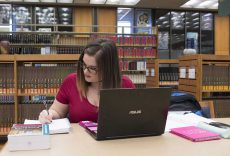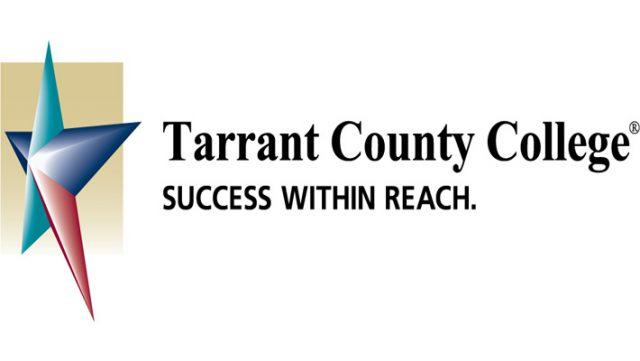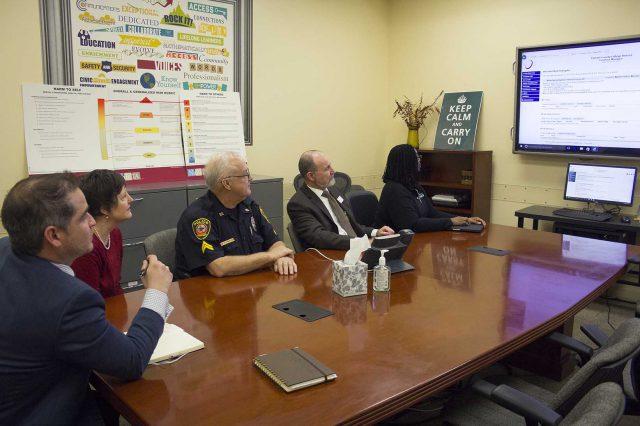By Katelyn Needham/ editor-in-chief

Peter Matthews/The Collegian
Reading and writing are skills taught early in academic careers, but for students who struggle with dyslexia and other learning disabilities, even the fundamentals can be challenging.
The student accessibility resources office helps students with learning disabilities by providing accommodations available to suit different needs.
“Some students don’t want to come in because they don’t want to be labeled as a student with a disability,” South SAR coordinator Yolanda Thomas said. “It makes academics a lot less complicated. The opportunities are there, and I think it’s a good idea for them to utilize them. It’s OK to have a learning disability. They are more common than you think.”
Dyslexia is in the top five to 10 most common disabilities on campus, Thomas said.
“I think [the accessibility resources] are helpful for the most part,” NE student Rhesa O’Brien said. “I have ADHD and dyslexia, and it’s good for the dyslexia because they give me a note taker and extra test time.”
Other available accommodations include a colored overlay that helps with reading or an audio textbook. The accommodations vary on a case-by-case basis.
“For students who struggle in varying areas, the stress and anxiety from trying to determine why it takes them so long will normally dissipate after they are diagnosed,” TR SAR coordinator Kimele Carter said. “It will help them recognize that they learn differently so they can move toward their goal. We are not giving preferential treatment. That’s against the law. They have the same rigor. They just need help learning it.”
To receive accommodations for any disability, students must provide medical documentation with their diagnosis and an explanation of its effect on their ability to learn.
“I take advantage of the accommodations. They help me succeed,” NE student Sandra Stojanovic said. “I use the testing center and the extended time I get to take my test. I remember my freshman year at TCC I did not take advantage of the testing center, and I did not do so well on my tests. I was feeling like I needed to finish faster because the other people in my class were done with the test.”
Though the accommodations available help many students, some feel it isn’t enough, like Marc Sanchez from NE.
“I get accommodations through the SAR, and they haven’t helped very much at all,” he said. “It’s like the teachers have to go out of their way to help you, and it’s almost like I am being a nuisance.”
When Sanchez was in high school, he helped pioneer a mentor program to help students in elementary and middle school with dyslexia.
“A really big influence was my dyslexia teacher,” Sanchez said. “We would give them strategies, like if they were in a test-taking area, we would help them through it and with note taking too. I think some kind of mentor setup would be better help at TCC, something where they talk to you once a semester one on one about what’s going on. That would help.”
Like Sanchez, Lennon Crow, who attends multiple TCC campuses, feels the accommodations were not very helpful.
“My professors would forget about it halfway through,” Crow said. “Some would treat me like I was autistic instead of just needing an adjustment in reading or writing material to prove my knowledge on the subject. They signed the stuff but didn’t really change.”
Crow has learned ways to work around his disability by arriving at school two hours early every day to work on homework and other assignments, along with using Audible.
“In high schools, there’s this no-man-left-behind mentality, but as an adult, it’s like you have a broken leg, but you have to run as fast as everyone else still,” he said. “I feel like as long as we can prove we know the material, even if it’s in a different way, we should get the grade — like speaking my paper instead of writing four pages. It’s hard to argue that with teachers.”
Learning what works best for their specific disabilities is helpful for most students.
O’Brien organizes her time so she stays on top of her work and doesn’t procrastinate. Sanchez uses sticky notes as a way to keep track of what he has read. Stojanovic has developed several ways to make reading on tests easier.
“I have learned that I have to do things differently than other people when it comes to certain things,” Stojanovic said. “When I am reading stuff, 90 percent of the time I have to read it out loud to myself. Then if I am taking a test, I have to cover the whole page with a blank paper and read line by line. That way, I can focus on what I am reading to understand it.”






























